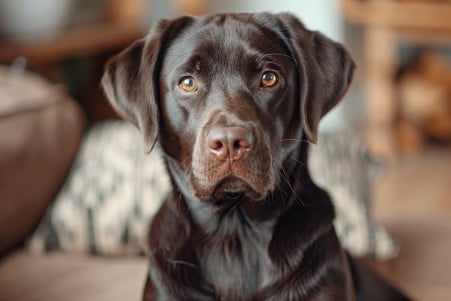Are Havanese Dogs Actually Hypoallergenic? Examining the Reality
19 April 2024 • Updated 19 April 2024

The Havanese dog is known for being hypoallergenic, but is that actually true? While the Havanese is often considered to be moderately hypoallergenic, it's important to remember that no dog is completely hypoallergenic. This is because all dogs produce allergens, including dander and saliva. That said, the Havanese's longer, human-like hair can help reduce the amount of allergens they produce.
To better understand the hypoallergenic nature of the Havanese, this article will look at research from canine genetics, veterinary medicine, and allergen studies. This will help us better understand the causes of pet allergies and the differences in allergen levels between dog breeds. By the end, you'll have a better idea of whether or not the Havanese is the right hypoallergenic dog for you and your family.
Are Havanese dogs hypoallergenic?
Comparing Shedding: Havanese vs. Other 'Hypoallergenic' Breeds
The Havanese is one of the breeds that sheds the least, and this is due to the lack of an undercoat. As Dogster notes, "Unlike some breeds, the Havanese does not have an undercoat. This means that much of the shedding associated with other dogs is not present." While they may have some light seasonal shedding, Havanese dogs are not heavy shedders.
That said, just because they don't shed much doesn't mean that the Havanese is low-maintenance in terms of grooming. They still need to be brushed regularly and bathed occasionally to keep their coat in good condition and minimize shedding, according to ASPCA Pet Insurance. "The double coat of a Havanese dog needs brushed multiple times a week. Overall, this breed has higher grooming needs than many other dogs."
It's also worth noting that while the Havanese is one of the breeds that sheds the least, no dog is truly hypoallergenic. As the American Kennel Club explains, "There is no such thing as a 100% hypoallergenic dog...All dogs can potentially cause an allergic reaction in people with dog allergies."
When compared to other breeds that are often considered hypoallergenic, such as Poodles and Schnauzers, the Havanese is less likely to shed. However, a study found no significant difference in allergen levels between so-called "hypoallergenic" dogs and other breeds. While shedding is one factor that contributes to allergens, it's not the only one and doesn't guarantee that a dog will be allergen-free.
In the end, the best way to determine if a Havanese is the right dog for you is to spend time with the specific dog you're considering since individual tolerance can vary. As the ASPCA explains, "If you or someone in your family has a dog allergy and are considering adopting a Havanese, it is best first to find an acquaintance who has a Havanese and spend time around that dog."
The Genetics of Havanese Hypoallergenicity
While Havanese dogs are often advertised as hypoallergenic, it's important to note that no dog is completely allergen-free. In fact, Family Puppies points out that "Technically speaking, there is no such thing as a hypoallergenic dog. This is because no dog breed is 100% hypoallergenic."
That said, the Havanese breed does have some genetic traits that make them less allergenic than other dogs. For example, the Havanese ABC website notes that Havanese produce less dander, which is a common allergen that can cause pet allergies. In addition, they don't shed as much, so there are fewer hair particles to carry allergens around the house.
It's also worth noting that the amount of allergens a Havanese produces can vary from dog to dog. According to the Havanese ABC, "one Havanese may be more irritating to an allergic individual than another Havanese." This is likely due to a combination of genetics and other factors that determine how much a dog's allergens will affect a person.
This is one of the reasons why it's important to remember that hypoallergenic dog breeds aren't allergen-free, but they are less likely to cause allergic reactions in most people. In fact, the Havanese Forum notes that some Havanese owners have even experienced allergic reactions to their dogs, which is why regular grooming and cleaning are so important in reducing allergen exposure.
Ultimately, while the Havanese breed may be a better option for people with allergies, it's important to remember that regular grooming and cleaning are still necessary to keep allergen levels low. As with any breed, it's also a good idea to talk to a doctor or allergist before bringing a Havanese into your home.
Other Hypoallergenic Dog Breeds
In addition to the Havanese, there are several other dog breeds that are often recommended for people with allergies. The American Kennel Club includes Poodles, Schnauzers, and Maltese among the most popular hypoallergenic dogs. These breeds have coats that shed less and produce less dander, which are both important in reducing allergens.
The Forbes Advisor article notes that many hypoallergenic dogs have coats that are curly, long, or hairless, which also helps keep allergens down. It cites Afghan Hounds, Poodles, and Portuguese Water Dogs as examples of dogs with these types of coats.
That said, the American Kennel Club warns that people should talk to their doctor or an allergist before getting any dog, including those that are labeled hypoallergenic. People's reactions to dogs can vary widely, and no dog is completely hypoallergenic.
For those with allergies who are considering other options, the WebMD article recommends looking at mixed-breed dogs at shelters and rescues, many of which may have a mix of traits that make them less likely to cause allergic reactions.
In the end, while some breeds may be better for people with allergies than others, it's important to keep a clean home and groom your dog regularly to manage allergens, no matter what breed you choose. And, as with the Havanese, no dog can be considered completely hypoallergenic.
Allergies: How to Cope With a Havanese
If you have allergies, especially to pet dander, you'll need to stay on top of grooming and cleaning to keep your symptoms at bay. According to StreetDirectory.com, Havanese allergies are often due to environmental factors, such as plants, food, or chemicals in household items. Regular baths and the use of hypoallergenic shampoos can help keep the dog's coat free of allergens.
In addition to grooming, iHeartDogs.com suggests that adding omega-3 fatty acids to the dog's diet can help support the immune system and reduce allergy symptoms. It's also a good idea to work with a vet to determine the specific causes of your dog's allergies.
To keep allergens in your home to a minimum, Royal Flush Havanese recommends using air purifiers with HEPA filters and limiting the dog's access to certain areas of your home. Regularly cleaning surfaces and fabrics will also help keep dander and hair from building up.
While no dog is completely hypoallergenic, these steps can help you keep your allergies in check if you have a Havanese. As with any breed, it's important to work with an allergist and pay attention to your own reactions before you bring a Havanese into your home.
Conclusion: Is a Havanese the Right Hypoallergenic Dog for You?
While the Havanese breed's potential as a more hypoallergenic option is worth considering for allergy sufferers, it's important to note that no dog is completely hypoallergenic. The Havanese's hair-like coat and lower dander production help make it a more hypoallergenic breed, but individual dogs can still have a wide range of allergen levels.
In addition to the Havanese, other dog breeds that are often recommended for people with allergies include Poodles, Schnauzers, and Maltese, all of which have low-shedding coats and produce less dander. However, the American Kennel Club notes that it's important to talk to a doctor or allergist before getting any breed, including those that are labeled hypoallergenic.
For those who are allergic to dogs and are looking for an alternative, the WebMD article recommends adopting a mixed-breed dog from a shelter or rescue, as these dogs may have a mix of traits that make them less likely to cause allergies.
In the end, while certain breeds may be better options for those with allergies, it's important to keep in mind that good cleaning habits and grooming are important for managing allergens, no matter what breed of dog you have. Like the Havanese, no breed can be guaranteed to be completely allergen-free.


